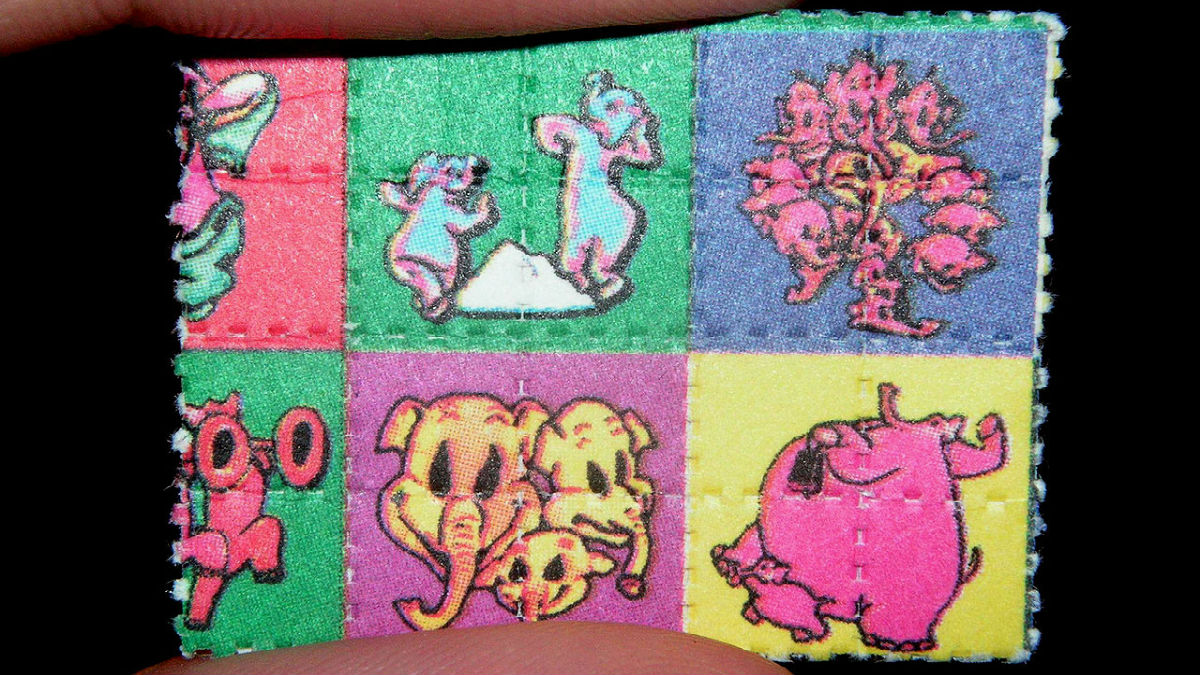Why is LSD becoming popular again?
Hallucinogenic drug back in spotlight as inquest hears Nick Cave's son fell to his death after taking acid

A free daily email with the biggest news stories of the day – and the best features from TheWeek.com
You are now subscribed
Your newsletter sign-up was successful
LSD has seen a resurgence in popularity in the UK in recent years, an inquest into the death of musician Nick Cave's son has heard.
Teenager Arthur Cave died after falling from a cliff in Brighton earlier this year. The inquest heard that he had taken the drug before the fall and was having "vivid hallucinations," the Daily Telegraph reports.
Clinical scientist Amber Crampton told the court there was evidence that the drug was becoming increasingly popular. "I don't imagine it's too difficult to get hold of in Brighton," she said. "It used to be popular in the 60s and 70s. It's more popular now than many people are aware."
The Week
Escape your echo chamber. Get the facts behind the news, plus analysis from multiple perspectives.

Sign up for The Week's Free Newsletters
From our morning news briefing to a weekly Good News Newsletter, get the best of The Week delivered directly to your inbox.
From our morning news briefing to a weekly Good News Newsletter, get the best of The Week delivered directly to your inbox.
Statistics published by the Crime Survey of England and Wales earlier this year back up her claims, showing a sharp rise in the use of the Class A drug in the last two years.
History of LSD
LSD – also known as acid – is a potent hallucinogenic drug that was first synthesised by Swiss chemist Albert Hofmann in 1938. Its psychoactive properties were only discovered five years later after Hofmann was accidentally exposed to a tiny dose and described seeing an "uninterrupted stream of fantastic pictures, [and] extraordinary shapes with [an] intense, kaleidoscopic play of colour."
LSD became the drug of choice for 1960s hippy counterculture and had a significant influence on the era's music and art. "To its defenders, LSD was part of the reason why the old ways of thinking could be challenged," says the BBC. The drug was banned in the UK in 1966 and its medical use was outlawed in 1973.
A free daily email with the biggest news stories of the day – and the best features from TheWeek.com
Dangers of the drug
The drug produces extremely vivid hallucinations – which can last more than eight hours – and its use has been linked in the past to increased rates of suicide and accidental deaths. It also has the potential to trigger mental health problems in people who are already susceptible.
But Amanda Feilding, director of the Beckley Foundation which researches psychedelic drugs, says there are few dangers if the drug is used correctly in a safe environment. "Actually it's completely non-toxic and if it's taken in the right conditions it can be a very useful substance," she told The Guardian. A recent study published in the Journal of Psychopharmacology found no elevated risk of suicide.
Why is it becoming popular again?
Experts say the reasons are unclear. Some speculate that the increase in the use of the hallucinogen could simply be down to what is fashionable. "The 70s are back in fashion, for women's fashions at least – you have these sort of revivals and cycles," said Professor Fiona Measham, chair of a working group on polysubstance use for the Advisory Council on the Misuse of Drugs.
She also suggests that it could also be due to the relative scarcity of the drug, with some users shunning substances that are no longer "cool" because they are so readily available. "Maybe there's a whole load of stars aligning in relation to that," said Measham.